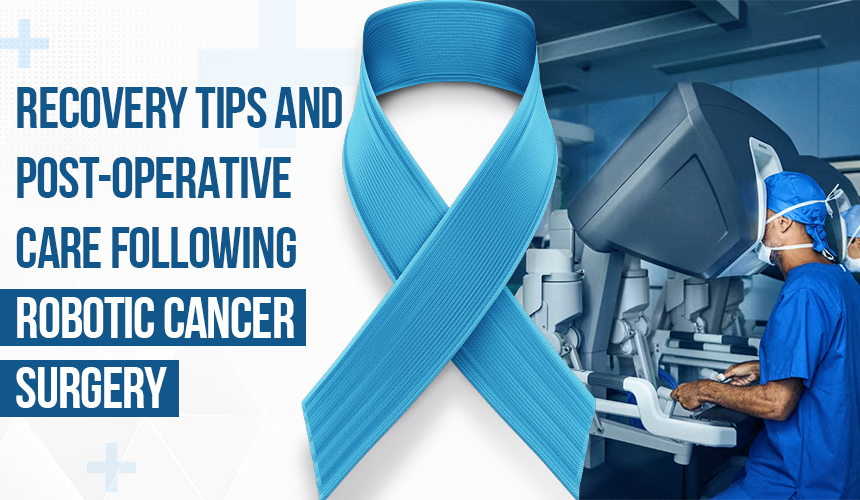Recovery Tips and Post-Operative Care Following Robotic Cancer Surgery
Undergoing robotic surgery for cancer treatment marks a significant step in the journey toward healing and recovery. While the procedure itself is a crucial milestone, the post-operative period plays a vital role in ensuring a smooth and successful recovery. In this comprehensive guide, we will explore essential tips and post-operative care measures to support patients through their recovery journey following robotic cancer surgery in Bangalore.
Understanding Robot-Assisted Surgery:
Robotic-assisted surgery has transformed cancer treatment by offering patients minimally invasive procedures with enhanced precision and reduced recovery times. During this surgery, advanced robotic technology assists skilled and experienced surgeons in performing intricate procedures with small incisions, leading to minimal tissue damage and faster healing.
Post-Operative Recovery Tips:
- Follow Physician's Instructions: Adhering to your surgeon's post-operative instructions is paramount for a successful recovery. This includes taking prescribed medications, attending follow-up appointments, and following dietary and activity restrictions.
- Manage Pain: Pain management is crucial during the initial stages of recovery. Take prescribed pain medications as directed by your healthcare provider and use ice packs or heating pads as needed to alleviate discomfort.
- Stay Hydrated: Proper hydration is essential for recovery and helps prevent complications such as urinary tract infections. Ensure to drink plenty of water during the day unless otherwise advised by your doctor.
- Eat Nutritious Foods: Maintain a balanced diet rich in fruits, vegetables, lean proteins, and whole grains to support healing and promote overall health. Avoid foods that may irritate the digestive system or cause discomfort.
- Gradually Increase Activity: While it's essential to rest and allow your body to heal, gradually increasing your activity level can help prevent complications such as blood clots and muscle stiffness. Start with light activities such as walking and gradually progress as tolerated.
- Practice Deep Breathing Exercises: Deep breathing exercises can help prevent complications such as pneumonia and improve lung function following surgery. Take slow, deep breaths several times a day to expand your lungs and improve oxygenation.
- Maintain Wound Care: Proper wound care is essential to prevent infection and promote healing. Keep surgical incisions clean and dry, and follow your surgeon's instructions regarding dressing changes and wound care techniques.
- Seek Emotional Support: Coping with a cancer diagnosis and undergoing surgery can be emotionally challenging. Seek support from loved ones, join support groups, or consider speaking with a mental health professional to address any emotional concerns or anxieties.
Post-Operative Care Measures:
- Monitor Symptoms: Pay close attention to any changes in symptoms or new symptoms that may arise during the recovery period. Contact your healthcare provider immediately if you experience persistent pain, fever, chills, excessive bleeding, or other concerning symptoms.
- Attend Follow-Up Appointments: Regular follow-up appointments with your surgeon are essential for monitoring your progress, evaluating healing, and addressing any concerns or complications that may arise. Make sure to attend all the scheduled appointments with your doctor and communicate openly with them.
- Physical Therapy: Depending on the type of surgery and your individual needs, your healthcare provider may recommend physical therapy to help you regain strength, mobility, and function following robotic surgery. Participate in physical therapy sessions as directed to optimize your recovery.
- Rehabilitation Services: In some cases, rehabilitation services such as occupational therapy or speech therapy may be beneficial for patients recovering from certain types of cancer surgery. Discuss your rehabilitation needs with your healthcare provider to determine the most appropriate treatment plan for you.
Recovery following robotic cancer surgery requires patience, dedication, and a comprehensive approach to post-operative care. By following these essential tips and post-operative care measures, patients can support their recovery journey, minimize complications, and optimize outcomes. Remember to communicate openly with your doctor, stay positive, and prioritize self-care as you navigate the road to recovery.


